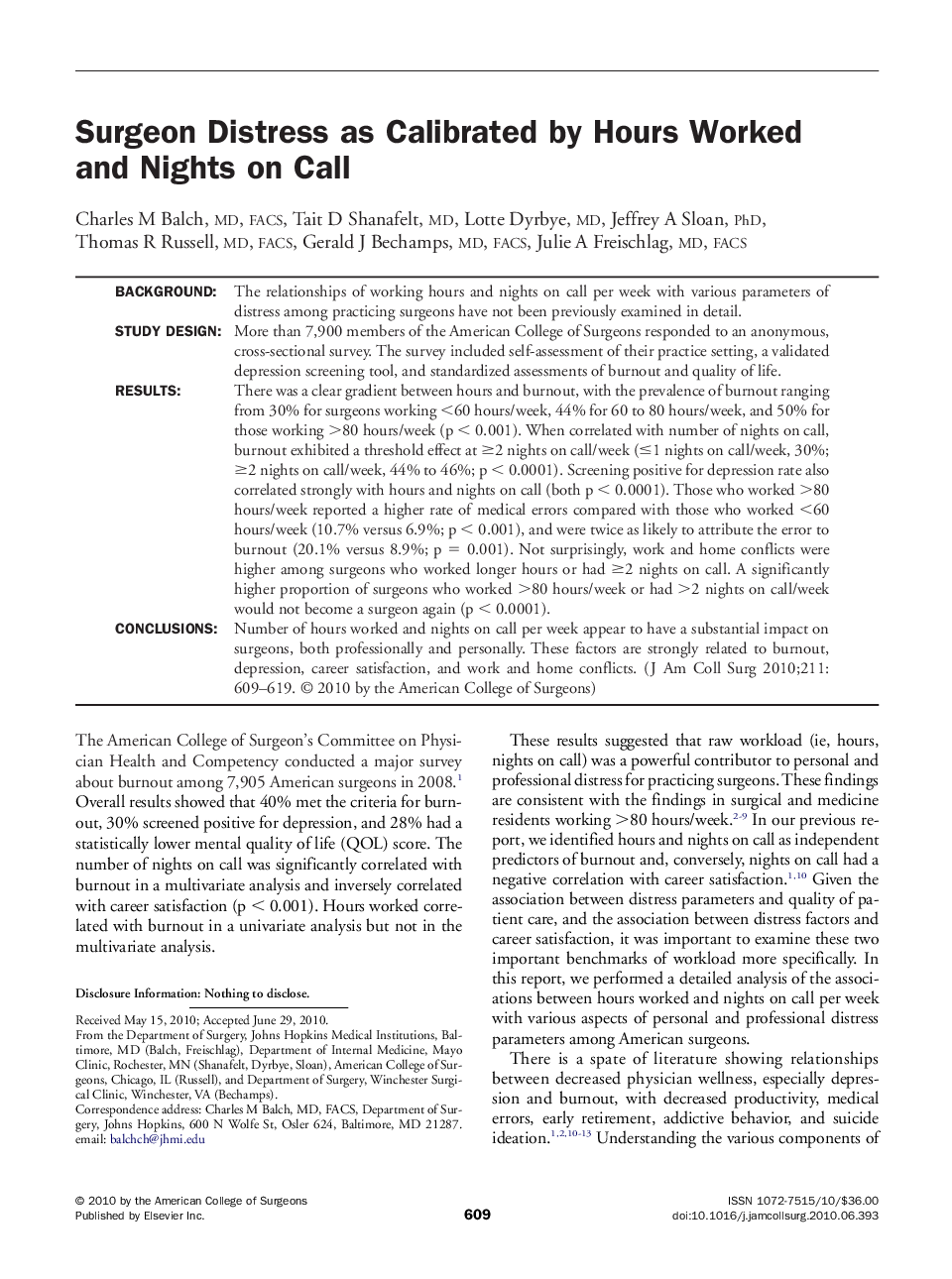| کد مقاله | کد نشریه | سال انتشار | مقاله انگلیسی | نسخه تمام متن |
|---|---|---|---|---|
| 4293535 | 1612279 | 2010 | 11 صفحه PDF | دانلود رایگان |

BackgroundThe relationships of working hours and nights on call per week with various parameters of distress among practicing surgeons have not been previously examined in detail.Study DesignMore than 7,900 members of the American College of Surgeons responded to an anonymous, cross-sectional survey. The survey included self-assessment of their practice setting, a validated depression screening tool, and standardized assessments of burnout and quality of life.ResultsThere was a clear gradient between hours and burnout, with the prevalence of burnout ranging from 30% for surgeons working <60 hours/week, 44% for 60 to 80 hours/week, and 50% for those working >80 hours/week (p < 0.001). When correlated with number of nights on call, burnout exhibited a threshold effect at ≥2 nights on call/week (≤1 nights on call/week, 30%; ≥2 nights on call/week, 44% to 46%; p < 0.0001). Screening positive for depression rate also correlated strongly with hours and nights on call (both p < 0.0001). Those who worked >80 hours/week reported a higher rate of medical errors compared with those who worked <60 hours/week (10.7% versus 6.9%; p < 0.001), and were twice as likely to attribute the error to burnout (20.1% versus 8.9%; p = 0.001). Not surprisingly, work and home conflicts were higher among surgeons who worked longer hours or had ≥2 nights on call. A significantly higher proportion of surgeons who worked >80 hours/week or had >2 nights on call/week would not become a surgeon again (p < 0.0001).ConclusionsNumber of hours worked and nights on call per week appear to have a substantial impact on surgeons, both professionally and personally. These factors are strongly related to burnout, depression, career satisfaction, and work and home conflicts.
Journal: Journal of the American College of Surgeons - Volume 211, Issue 5, November 2010, Pages 609–619